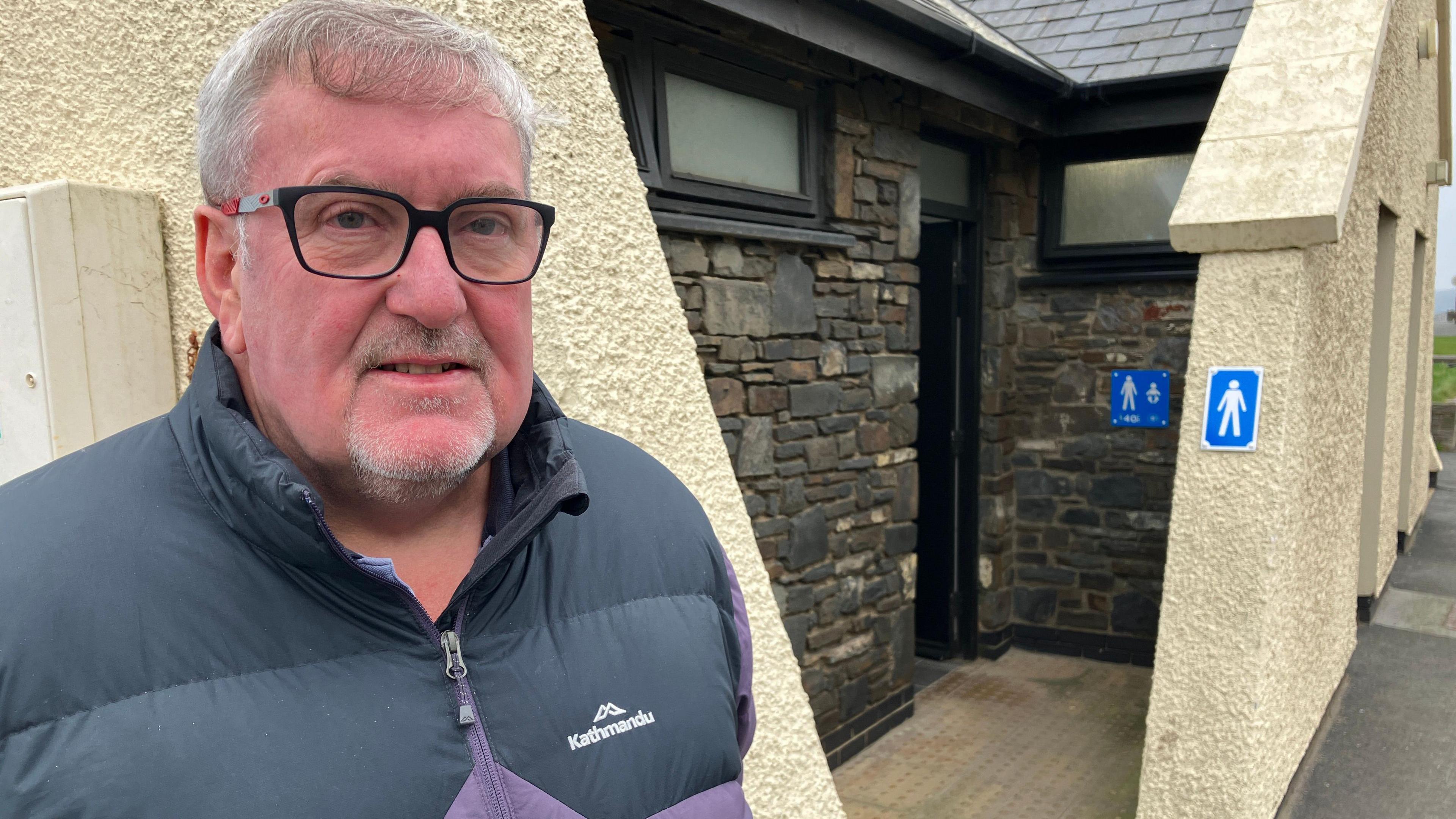The tiny village where volunteers run a public toilet on a rota
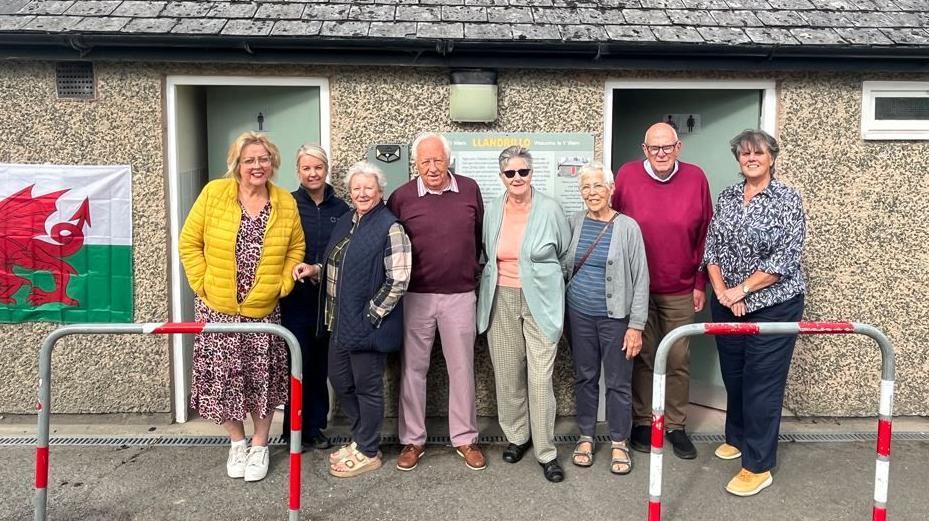
Volunteers, working in pairs, take it in turns to maintain and lock up the Llandrillo toilets
- Published
At a time when tight budgets have led many councils across Wales to close public toilets, one community group is marking 20 years of running their own on a voluntary basis.
Denbighshire council pulled the plug on the small toilet block in Llandrillo, near Corwen, back in 1998.
But, in an area popular with walkers heading into the nearby Berwyn mountains, villagers knew both they and visitors sorely needed access to the facility, which sits next to the village playing field and park.
Working in pairs, volunteers take it in turns to maintain and lock up the toilets, with each person committed to working one week in every 10.
"I got a feasibility study together and did a community-wide consultation," said David Robinson, who launched the campaign to take over the running of the facility and is still secretary of the group of volunteers which runs the toilet block.
"It took three years from finishing that feasibility study to opening the doors."
Barry Island toilets to be turned into restaurants
- Published18 August
Council gets £500,000 to refurbish toilets
- Published6 June
People avoid drinking over lack of public toilets
- Published20 April 2024
Denbighshire council agreed to lease the building to the volunteers for 21 years, with talks currently under way on what happens when the lease ends next year.
The annual running costs of about £1,500 are met with small grants from Denbighshire council and the local community council, as well as donations from the annual village fete and a box outside the building where those who use the toilets are encouraged to make a donation.
That source of income has increased since Mr Robinson's granddaughter Gwenllian Roberts penned a short poem displayed in both the gents and the ladies explaining how the toilets operate.
"We've had almost twice the amount of money since we put the poem up," said 11-year-old Gwenllian.
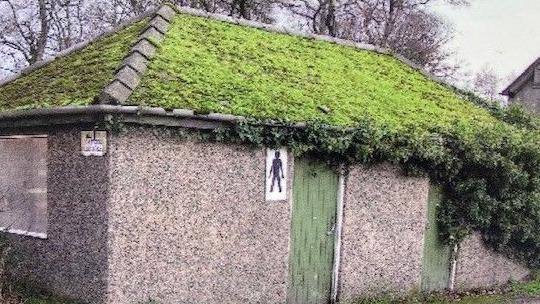
The toilet block was in a sorry state back in 2004
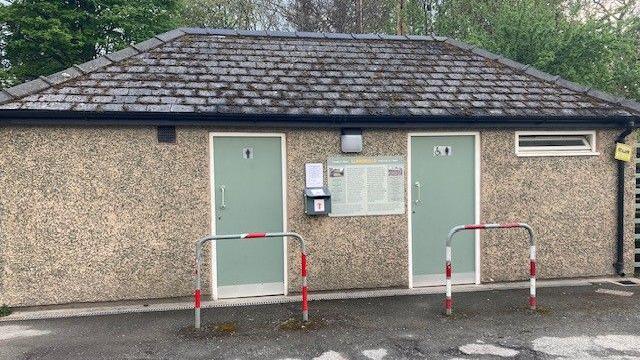
But the public facility is now celebrating 20 years of being run by volunteers
Senedd Member Ken Skates was on hand on Thursday to unveil a plaque marking the 20th anniversary of the toilet's life as a community service, and thinks others may need to follow suit.
"Finances are stretched everywhere - this isn't just an issue in Wales and the UK but it's an issue right across Europe," he said.
"People are being empowered to do more within their community, if they wish to. Taxes can only go so far."
Skates added with growing costs of running key public services like social care and health, "difficult decisions sometimes have to be made".
"But communities the length and breadth of Wales have followed what Llandrillo have done here and they are saving community assets. That's what these are - they are community assets that are really important for members of the public."
Additional reporting by Tony Brown
- Published21 August

- Published6 February
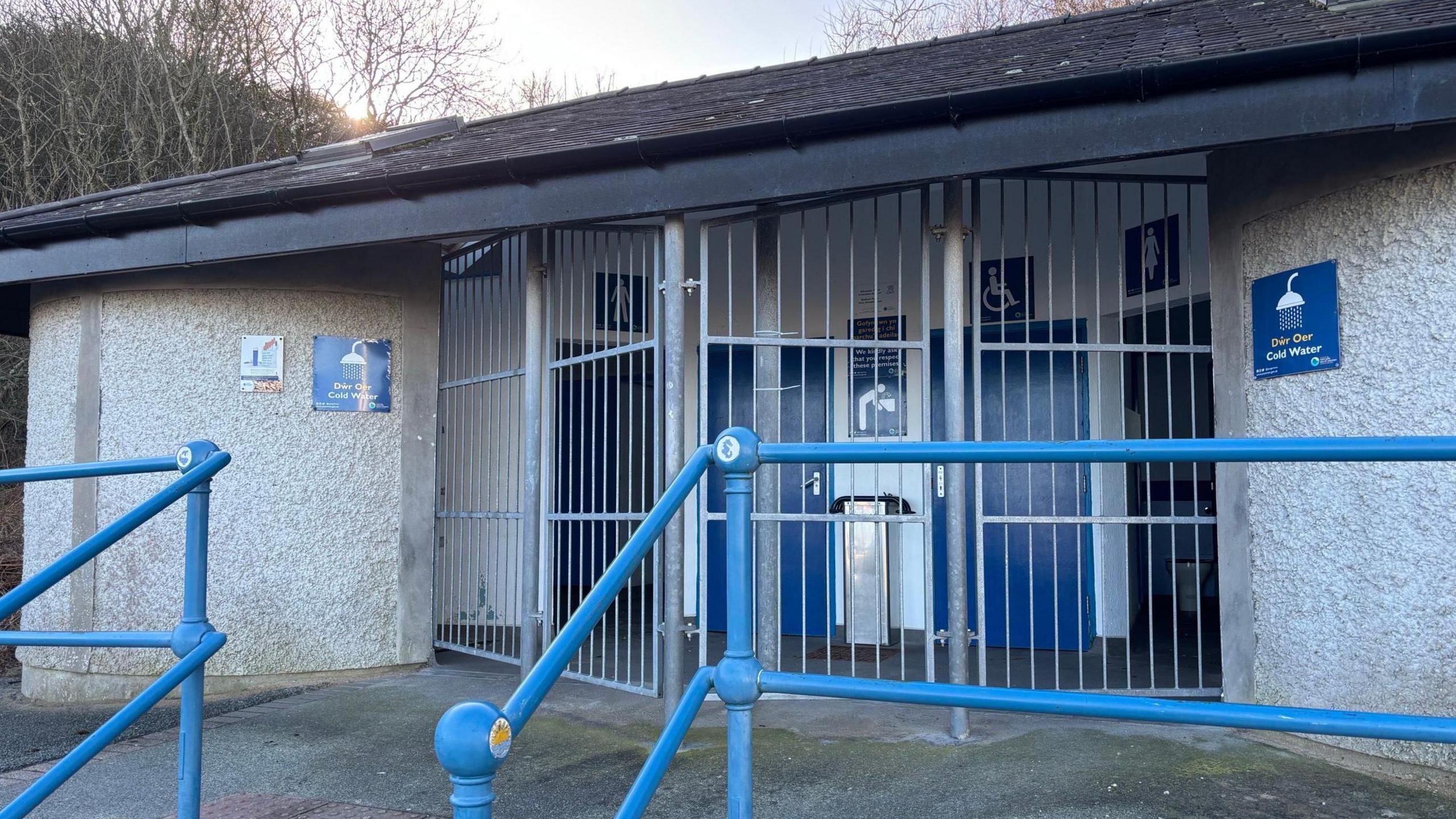
- Published11 November 2024
